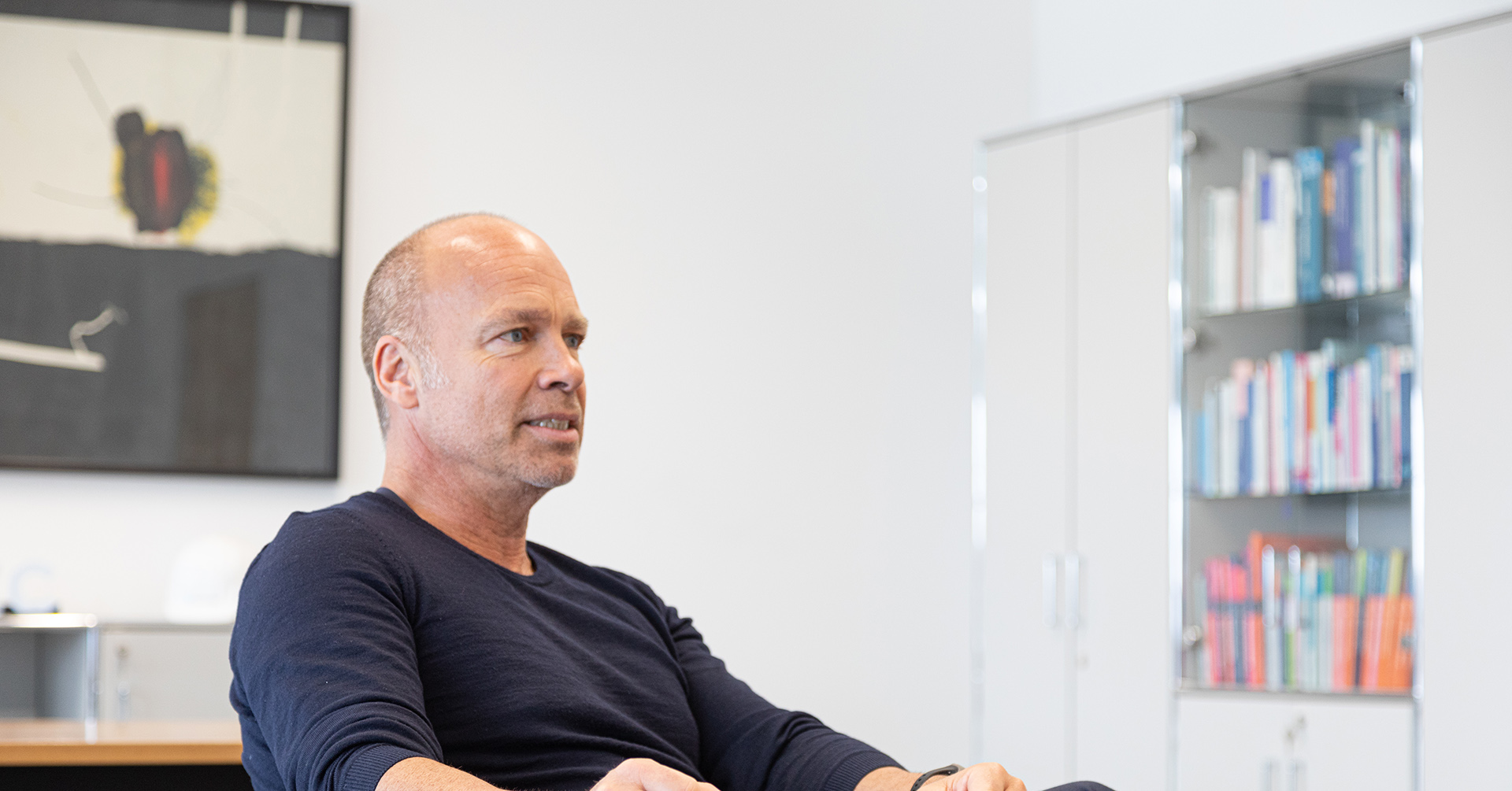Source: Fraunhofer IPA/Photo: Rainer Bez
Fraunhofer benefits from momentum of spin-off founders
Fraunhofer IPA in Stuttgart occupies a leading position across Europe in technology transfer through research spin-offs and startups. Communication expert Florian Semle spoke with Institute Director Thomas Bauernhansl on the Institute’s groundbreaking strategy.
Professor Bauernhansl, Fraunhofer IPA is one of the leading research institutions in Europe for spin-offs. What makes your Institute so successful?
Thomas Bauernhansl: Our most important success factor is our researchers – their competence and motivation – whether in technology and research transfer or start-ups. The spirit of research and entrepreneurship have much in common, and our teams are chock full of energy and enthusiasm. At Fraunhofer IPA we want to exploit this potential and actively pave the way for their personal development.
For Fraunhofer, that means we need to take the perspective of potential end users and investors into account when designing our research. We need to ask entrepreneurial questions such as: What real problems can we solve with our technology when we’re competing and for which target groups? Are the results of our research industrially scalable? Do we meet the stringent demands of investors? If we can find answers to these questions for a technology, spin-offs or industrial partnerships are the logical next step for the Institute and a great incentive for people to want to work with us.
So at Fraunhofer IPA, do you see spin-offs as a "career path" for potential employees? As an Institute, aren’t you shooting yourself in the foot in retaining top talents?
Bauernhansl: On the contrary. A lot of young talent today isn’t sure whether they want to pursue an academic research career or in private-sector industry when they start with us, but want to acquire key qualifications at Fraunhofer IPA for their future path, wherever that may lead. Lifelong careers within a single organization are statistically a thing of the past today, at least for many younger people. We must work within this reality, not against it, if we want to attract and retain talented young graduates.
Many promising young researchers have an entrepreneurial mindset. The opportunity to found their own start-up one day with our support – based on Fraunhofer technology – makes us more attractive as a potential employer. Many have consciously chosen us – so we’ve been able to bring on new talent with our proactive spin-off policy.
But don’t you have to deal with the potential loss of that expertise?
Bauernhansl: I would dispute that, too. Our experience shows that a technology spin-off can bind expert personalities to Fraunhofer. Spin-off start-ups remain connected to the Institute in a variety of ways, for example through research contracts, licensing relationships and so on. With spin-offs, we can offer a career step up to entrepreneurship within our own ecosystem and create new, practical connections for the Institute and these newly minted founders.
Some founders return to us after a successful spin-off – perhaps selling it to a larger company – then depart to found yet another company. As an Institute, we benefit in several ways: We can repurpose, refine and re-scale technology that offers no further research potential for the Institute itself, but which could be restructured, thus providing further financial returns from our research results. At the same time, we can bring entrepreneurial thinkers back to the Institute as role models for our researchers and intrapreneurs.
You cited scalability as a key success factor for spin-offs and technology transfer. How does Fraunhofer IPA implement this?
Bauernhansl: I’m a member of the High-Tech Gründerfonds (Founder’s Fund) investment committee, and, before joining Fraunhofer, I was also a managing director of a technology group. That’s how I know the potential for scaling determines which transfer path is most optimal for a technology, how the business model needs to be designed and what “return” the institute can expect from a spin-off as a source of intellectual property, or IP. In addition, our founding teams shape their own perspective as potential entrepreneurs with an effective, scalable business model. That’s why we develop value-centric scaling scenarios at a very early stage, which grow as a project and technologies mature to meet capital market criteria.
How do you anchor this entrepreneurial thinking in the Institute's culture? And how do you utilize the support of Fraunhofer Venture for this?
Bauernhansl: When I joined Fraunhofer in 2011, spin-offs were more tolerated than desired, and research was almost exclusively oriented toward public funding opportunities and IP marketing at established companies. Both have advantages, but also clear limitations. For example, it’s difficult to find partners for future technologies, because they’re already far ahead of existing systems or are not compatible with them.
Today, we have a different objective: We want to combine science with entrepreneurship to remain a successful research Institute, but also become a founding institution in the long term.
Though I don’t see our Institute in every field of technology yet, I think we’re very well positioned at many levels. For many at Fraunhofer IPA, our workshops, our intensive cooperation with the ‘support-tandem’ of Fraunhofer Venture, and the transfer-funding program AHEAD are all part of our own strategic orientation and part of our institutional culture. Our organization not only allows entrepreneurial approaches, but proactively promotes them – because we benefit from the momentum of the founding teams.
We in management at the Institute try to live these entrepreneurial initiatives ourselves, through accepting mandates for our spin-offs, in-person coaching and willingness to take risks where necessary. If we want to ignite the spirit of entrepreneurship at Fraunhofer, we must also set an example ourselves. For example, I’d like to see the Fraunhofer-Gesellschaft be initial investors in promising start-ups based on Fraunhofer technology.
Let’s take that as the final word for the time being. Thank you, Professor Bauernhansl, for our conversation and inspiration!
Your expert contact
Birgit Spaeth
Spokeswoman of the Institute Management
Phone: +49 711 970-1810
